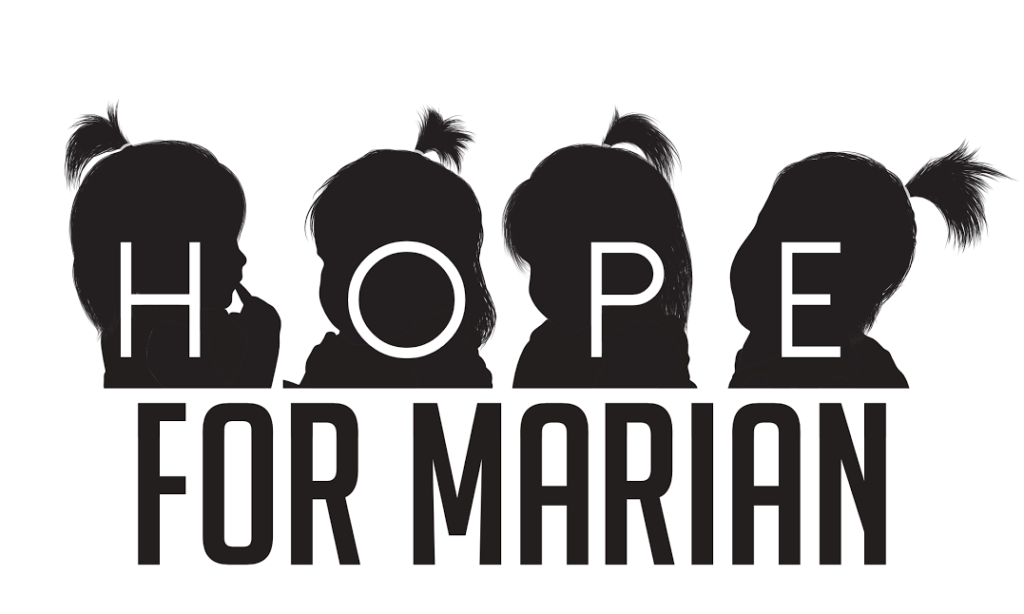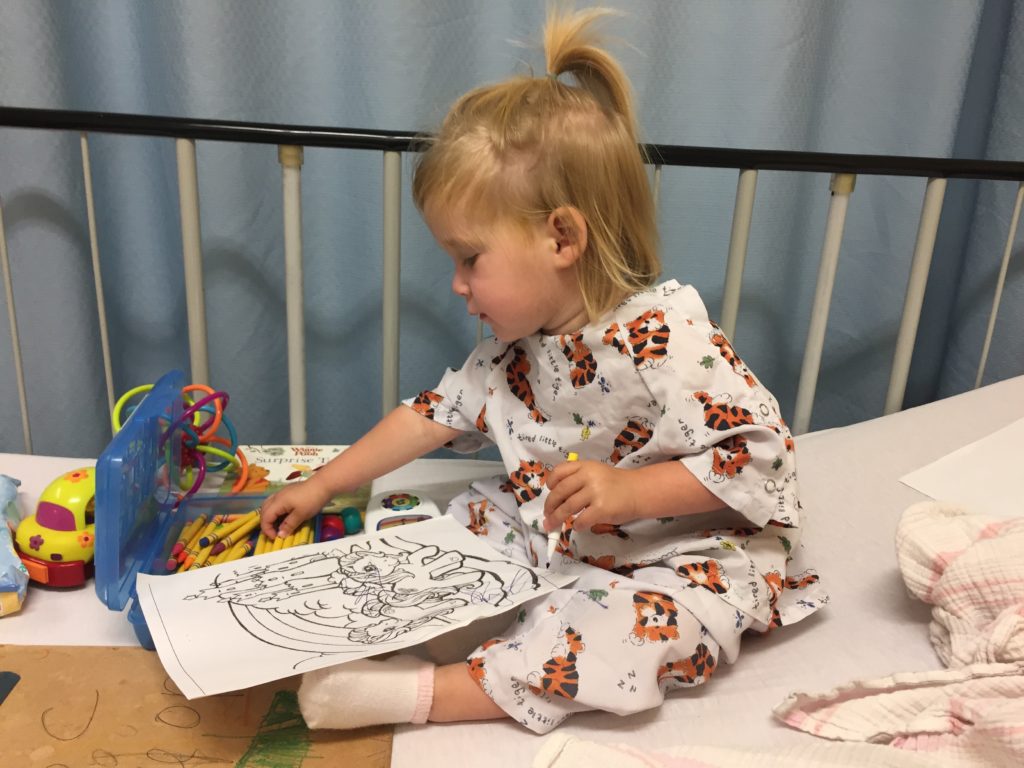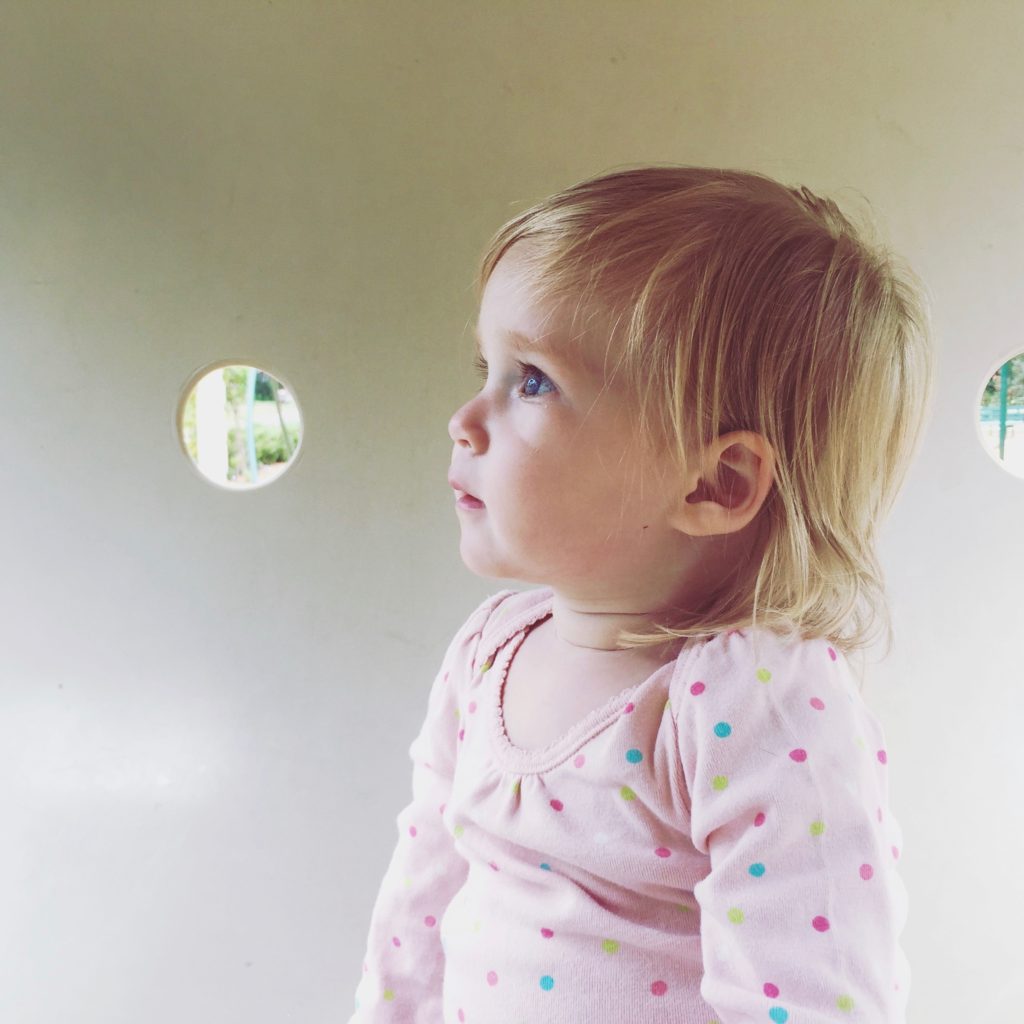The following guest post may be difficult to read, but it is also honest, poignant, and above all, a brave account of one mother’s struggle to save her terminally ill daughter. This beautiful little girl, Marian, needs our help! If you can, please contribute to her fund, and if you’re not financially able, you can still help by spreading the word and praying for her and her family.
Hanukkah, perhaps more than any other Jewish holiday, is the favorite holiday of children. As a Jewish American, it holds a special place in my memory. During my childhood, I could not wait to open a new gift each night! My mother would lay them out by the fireplace, and I’d shake and inspect each one before carefully making my selection, trying to foresee what would unfold.
Now that I am a mother of two small girls, I am reminded often of my childhood and relationship with my own mom. During this holiday season, instead of focusing on gifts and fun, I’m concerned with whether my younger daughter, Marian, who in most ways is a healthy and active two-year-old, will live or die.
In February, we received the news that Marian’s enlarged spleen and developmental delays were early warning signs of Niemann-Pick Type C. This disease is fatal with no cure. It causes neurodegeneration and progressive suffering. Without a cure, Marian will lose her ability to swallow, speak, move, and learn. As I sit and watch her laughing, playing and cuddling her big sister, it is difficult to imagine that this will truly be her fate. We know that without a cure, she will be lucky to live past ten-years-old, and whatever time she has left will be filled with crushing disabilities.
The immediate days after we received the news we terrible. We were in shock, devastated, and heartbroken. We had only recently learned recessive genetic conditions like these even exist—a whole category of “lysosomal storage disorders” affecting children and adults, all fatal and only a tiny amount with effective treatments.
Three things drove us forward in those early days, (1) a NPC parent telling us that we can do nothing or we can fight. We chose to fight for her life; (2) a NPC specialist telling us the disease is at a turning point of hope; and (3) the words my great aunt Elsie, a Holocaust survivor, said many times, and repeated over and over by my mom, “It should not get worse.”
And so, out of our devastation, came a ray of hope. We began traveling back and forth from Los Angeles to Chicago to receive an experimental treatment that is effective in slowing the disease progression. After two months, Marian went from not being able to stand independently to walking. After three months, we were able to transition her treatments to Los Angeles. After six months, her language comprehension increased.
Friends and family rallied around us in a way I never could have anticipated. We began raising money to help find a cure and we took the plunge in opening our lives and sharing our deepest pain and need. We are sharing our story for many reasons—to help others learn about NPC, to create awareness, and to accelerate research. All of these things will to help save Marian’s life and others with NPC.
As I sit and watch my two girls, sitting side by side, who love each other so much, I am filled with hope. In spite of the constant fear simmering beneath the surface, our hearts are filled with gratitude and love. Even with the pain and devastation that has come, I still hope that Marian and all children with NPC will have a brighter future.
This year, as we light the menorah and commemorate the miracle that took place so many centuries ago, I will remember that miracles still happen. I can’t shake and inspect what will unfold in Marian’s future, but we are grateful for each good day that she has and are urgently fighting for more.
Marian’s family has established a nonprofit to raise funds for lifesaving research. To learn more about NPC or to support this cause, please visit hopeformarian.org.



